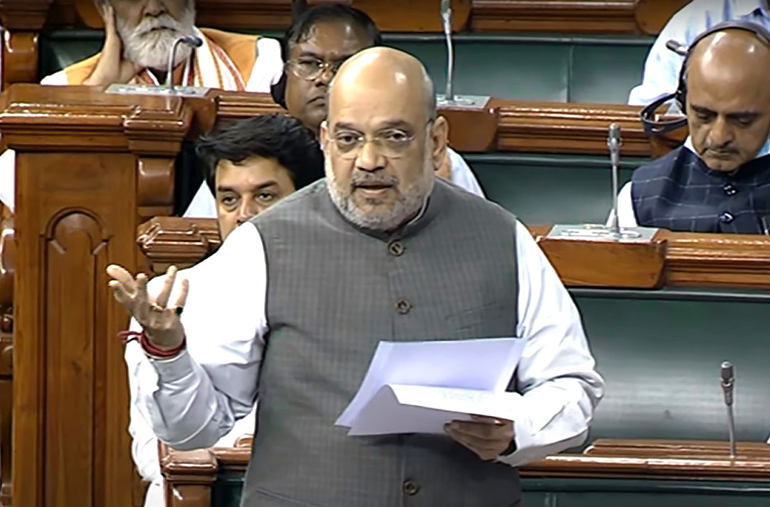New Delhi: The Centre on Friday introduced three Bills in the Lok Sabha to replace the colonial-era criminal laws.
Union Home Minister Amit Shah said that the proposed legislations will bring about a “transformative change” in the Indian judicial system by prioritising the delivery of justice over punishment.
Shah said the Indian Penal Code (IPC), 1860, Criminal Procedure Code (CrPC), 1898, and the Indian Evidence Act, 1872, will be replaced by the Bharatiya Nyaya Sanhita (BNS) Bill, 2023, Bharatiya Nagarik Suraksha Sanhita (BNSS) Bill, 2023, and Bharatiya Sakshya (BS) Bill, 2023, respectively, once these are cleared by the Parliament.
For now, the bills have been sent to the Parliamentary Standing Committee on Home Affairs for detailed scrutiny.
Among the major highlights of the BNS Bill is the scrapping of Section 124A, which deals with sedition, along with the addition of a new section to prescribe punishments for secession, armed rebellion, subversive activities, separatist activities, or activities that endanger the sovereignty, or unity and integrity of India.
The bill also says that punishment for mob lynching can go up to the death penalty, a move that Shah said has been taken after closely studying such crimes.
In total, 313 changes have been proposed in the three criminal laws, he said, adding that the objective is to ensure that people who approach the courts get justice within three years.
“The laws that are being replaced were essentially aimed at safeguarding the continuation of the British administration and their objective was to punish, not deliver justice,” Shah said.
“The new laws will safeguard constitutional rights and deliver justice. These laws will be imbibed with the Indian soul,” he added as the treasury benches thumped their desks. The Opposition had staged a walkout.

